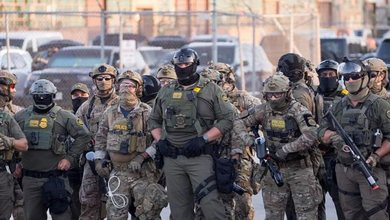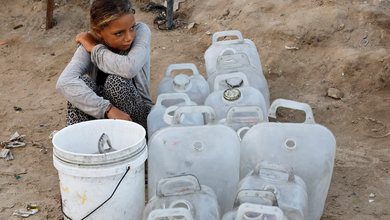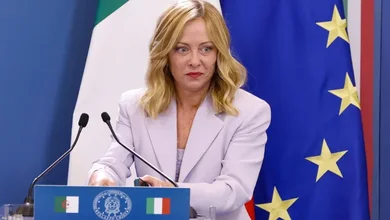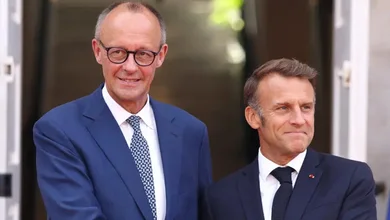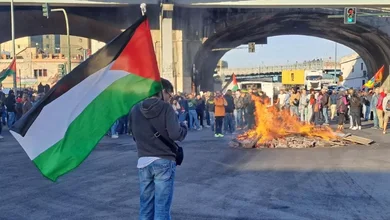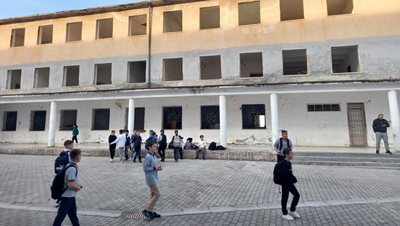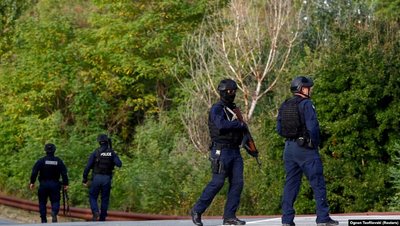
CAIRO/ISRAEL, Oct 5 (Reuters) - Israeli planes and tanks bombed various areas of the Gaza Strip overnight and on Sunday, destroying several residential buildings, witnesses reported, as Palestinians hoped a United States plan to end the war would soon ease their suffering.
US President Donald Trump, who had called for a halt to the bombing, declared on his “Social Truth” platform on Saturday that Israel had agreed to an “initial withdrawal line” inside Gaza and that “once Hamas confirms, the ceasefire will go into effect IMMEDIATELY.”
Israel intensified the offensive as Egypt prepares to host delegations from Hamas, Israel, the United States and Qatar to begin talks on implementing the most advanced effort yet to end the conflict.
Some Palestinians, who have seen several failed attempts at a ceasefire since the start of the war two years ago, which then spread across the Middle East, are losing patience.
Ahmad Assad, a displaced Palestinian, expressed disappointment:
"Unfortunately, there is no translation of this agreement on the ground. We see no change, on the contrary, we don't know what to do. Should we stay on the streets? Should we leave?" he said.
Talks in Egypt will address outstanding issues
Hamas received a positive response from Trump on Friday after accepting several key points of his 20-point peace plan, including a halt to the war, Israeli withdrawal and the release of Israeli hostages and Palestinian prisoners.
But the group left several issues open for further negotiations, including whether it would be willing to disarm, a key Israeli demand.
“Success will depend on whether Hamas accepts the map, which shows the Israeli army will remain in control of most of the Gaza Strip,” a Palestinian official close to the negotiations told Reuters. “Hamas may also demand a clear deadline for the Israeli withdrawal from Gaza. The first phase of the talks will determine how things will proceed,” he added.
In a sign of optimism about Trump's plan, the Israeli shekel currency reached its highest level in three years against the dollar, while the Tel Aviv stock exchange hit a historic record.
Yaniv Pagot, head of trading at the Tel Aviv Stock Exchange, said the rise reflected a "shift from depression to optimism."
"It's the first time in months that I'm actually hopeful. Trump has given us a lot of confidence and we believe in him and his leadership," said Tel Aviv resident Gil Shelly.
Domestically, Prime Minister Benjamin Netanyahu faces growing pressure to end the war, from families of hostages and a weary public, while hardline members of his coalition demand there be no halt to the military campaign in Gaza.
Finance Minister Bezalel Smotrich said on X that stopping the attacks on Gaza would be “a grave mistake.” He and Security Minister Itamar Ben-Gvir have threatened to topple the government if the war ends.
Arab states welcome Hamas' response to Trump plan
Meanwhile, opposition leader Yair Lapid declared that he would provide "political cover" to ensure that Trump's initiative succeeds and "no one is allowed to sabotage the agreement."
In Gaza City — which Israel describes as Hamas' last bastion — Israeli forces continued their attacks and warned residents not to return, calling the area a "dangerous battlefield."
On Sunday, witnesses said Israeli jets had intensified bombing in the city, Gaza's largest urban center.
Gazans desperate for ceasefire plan to begin
Local health authorities said at least one Palestinian was killed and several others wounded in those attacks. Three more people were killed in separate Israeli attacks in other parts of the enclave.
Under Trump's plan, all Israeli hostages, living and dead, were to be released within 72 hours of Israel formally announcing its acceptance of the deal. Israel says 48 hostages remain, 20 of whom are alive.
Sources close to Hamas told Reuters that handing over the hostages alive would be possible, but extracting the bodies from the rubble of Gaza could take longer.
Trump said on Friday that he believes "Hamas has shown it is ready for a lasting PEACE" and urged the Israeli government to stop the bombing.
Israel launched its offensive after the Hamas attack on October 7, 2023, in which about 1,200 people, mostly civilians, were killed and 251 others were taken hostage, according to Israeli data.
The Israeli campaign has killed over 67,000 people in Gaza, the majority civilians, according to Palestinian health authorities.


